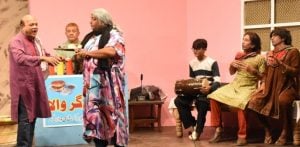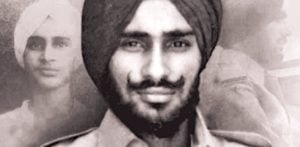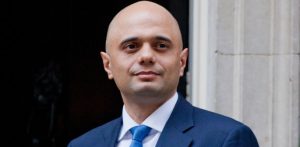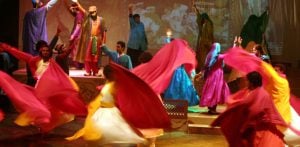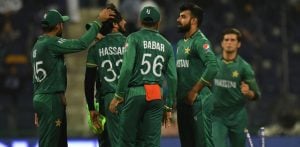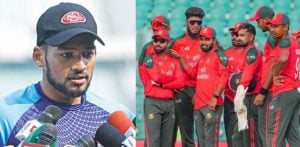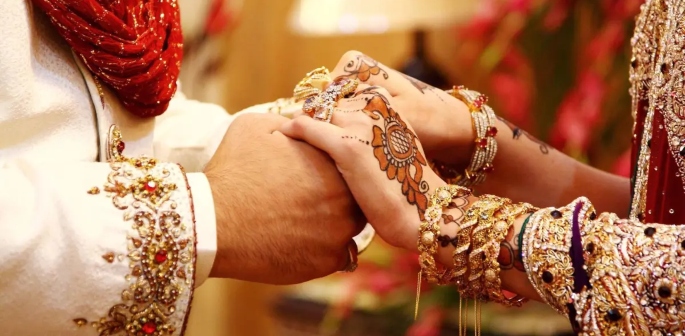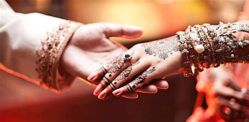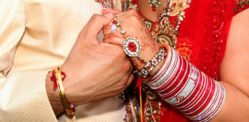"I felt like I couldn’t breathe around him"
Arranged marriages refer to the consensual marriage between two people that otherwise do not particularly know each other.
In most arranged marriage cases, a type of informal CV is made for both the bride and groom. This document encloses details such as weight, height, education, family background etc.
If the families are interested, then they meet and have a wider discussion.
A lot of the time, before the marriage there is no communication between the supposed bride and groom. Decisions are made by the parents and have to be respected by their children.
Children are often told to be obedient and that’ parents know them best’. Hence, they will be the best ‘decision-makers’.
Sometimes, parents also emphasise that they understand marriage and have more life experience to know what is best for their children.
Many times, this can work out perfectly. Other times, the journey is not so smooth.
In the modern age, the format of arranged marriages has changed for a lot of families.
Parents introduce their children, and they are given time to get to know each other and see if they are a suitable match.
In both cases, most parents don’t require their children to fall in love before marriage.
In retrospect, this comes as a taboo in the South Asian community because children are forced to marry someone they don’t love.
Whilst these feelings can develop, the whole process of being matched with someone you’ve never met is worrying.
Love marriages are equally stigmatised because they deviate from arranged marriages which some families see as the only ‘proper’ way to end up with a life partner.
Elder generations see these types of relationships as too western and something not culturally acceptable.
Therefore, those who do marry in these circumstances are sometimes disregarded by the family and judged.
This results in many not speaking out about their experiences, whether good or bad.
Often, Desi people who experience a lack of love or intimacy are told to stay quiet and have to live out their marriages in sadness.
But, how do those in these types of marriages feel about this? Can they speak out or have their relationships worked? DESIblitz explores.
Arranged Marriages: Is it Fair?
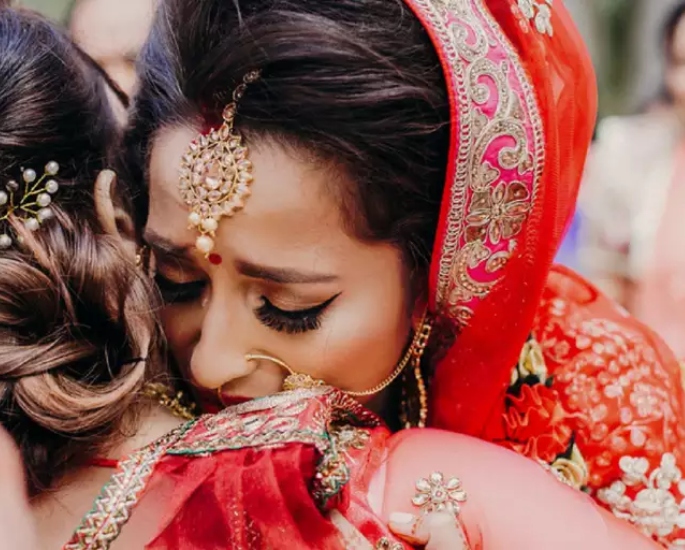
DESIblitz spoke to some people who have had arranged marriages to understand their views and emotions.
Sonia Wahid*, married for 37 years shares:
“I have been married all my life for all that I can remember.
“My marriage was fully arranged. I didn’t meet him once before marriage. My parents knew one of his relatives and that’s when they came for my rishta.
“Everyone in my family has had arranged marriages so I didn’t even dare think about anything different. I said yes, as all good girls from respectful families do.”
For Sonia, arranged marriage was expected, anything different would be retaliation against her parents and their ideals. She continues to say:
“I don’t love him, but I like him. I don’t know why. He is kind and respectful. He is a good man.
“All you need is respect and understanding. That’s all. I suppose I love him as the father of my children. I love him as a friend. But there’s no ishq. I am happy.”
Sonia believes love isn’t a necessity to have a happy marriage. Sometimes, respect is all you need.
A contrasting experience is shared by Mustafa Ali* who has been married for 10 years:
“We spoke and met a couple of times with family around. We never met alone because that’s our cultural expectation but that didn’t make a difference.
“After around a year, we set a date and the rest is history. My parents definitely chose the right person for me. She’s my soulmate. She has to be.
“It’s weird with arranged marriages because you go from not knowing that person to knowing everything about them after marriage.
“I married her because I knew she was someone I could see myself falling for. That one year was necessary to solidify my thoughts.
“Love for me came after marriage. I didn’t love her straight away.”
“I had massive respect for her, and I don’t know when that respect changed to love. But I do. It’s clear now more than ever.”
These days many people prefer to have a love marriage because of the fear that an arranged marriage would not work out.
However, Mustafa’s situation is a prime example that parents can be right.
Mustafa is happy with his arranged marriage. The motto of ‘love comes after marriage’ certainly worked for him.
However, there is uncertainty in Mustafa’s tone when questioned about what he would do if he didn’t love his wife:
“The parents were right; love does come after marriage. And if it didn’t, I don’t know what I’d do. I guess I’d feel trapped, but I don’t think it would lead to a divorce.”
Moreover, Fozia Islam, divorced and remarried says:
“Having been married twice I can say in a heartbeat that love makes or breaks. What led to my first marriage breaking down was the lack of love.
“I felt like I couldn’t breathe around him. He wasn’t physically abusive, but he was manipulating. Always izzat this and izzat that, I was sick of it.
“I resented my parents for setting me up with him. I always thought it was their fault for not researching the guy properly.”
When arranged marriages don’t work out, there is sometimes a lot of resentment on the children’s part. They feel their life has been destroyed because of their parent’s mistake:
“I brought up the fact that I don’t love him to my mother two years after our marriage. What she said still rings in my ear.
“She actually had the nerve to say ‘that’s all marriages beta’.”
The normalising of a loveless marriage in the South Asian community is toxic. Men and women that expect love and respect from marriage are often villainised and silenced.
While love isn’t important for everyone, there is no reason why people who value love should be put down as Fozia explains:
“She didn’t have my back. I had to have my own.
“Being in a loving marriage now has taught me that I shouldn’t have even waited it out for two years.
“I met my husband through a friend of a friend. The best decision I made was ignoring my parents’ advice.”
Additionally, Tayba Uddin*, married for 10 years shares:
“Ours was a typical arranged marriage.
“I found out years after our marriage that he was in love with a girl from a different background and his parents didn’t approve.
“He never did say ‘I love you’. Ever. Even in the bedroom.
“I never said either but that didn’t mean I didn’t love him or that I don’t love him now. It’s hard as a woman to express your love.
“My parents never said they loved each other but I assumed they did. I believed my husband loved me for three years. That’s how long the ignorance lasted.
“The bliss ended when he would be gone for nights and weeks. Or when he would sneak off to the garden to make ‘work calls.’”
Marital affairs often occur in some arranged marriages when emotional or sexual needs are not fulfilled by their spouses.
For Tayba’s husband, his parents’ disapproval of the girl he did love meant he closed his feelings off towards his wife. Instead, the missing love translated into infidelity:
“I never brought it up to my parents, I was ashamed and they wouldn’t understand.
“I asked him about his affair, and that’s when he told me that his parents never approved of her. But he couldn’t help that he was in love with her. That he was sorry to me, but he needed her.”
Ironically, it is the spouse that gets cheated on that carries the burden of the shame rather than the one that cheats.
Affairs are often not spoken about and ignored in the South Asian community. They are almost always kept under the covers.
Love is a necessity for Tayba’s husband so he cannot commit fully to his wife. This shows another stigma within arranged or strict families.
Even those who are being cheated on are expected to remain in the relationship without speaking up or leaving their partner.
Furthermore, we spoke to Majeed Roy who has been married for a year and shares:
“I had a completely arranged marriage. That’s interesting because my parents had a love marriage, so everyone assumed I’d go down the same path.
“I just didn’t find anyone, so my parents asked around and somehow, they found my wife.
“I don’t regret that I got an arranged marriage one bit. We’re very happy together. I do love her.
“I think the love came soon after our marriage, maybe even during all our wedding ceremonies, I don’t know.”
Arranged marriages are in a way a gamble of love. Some couples fall in love and have very happy and successful marriages.
Some, have traumatic experiences and this builds resentment towards the parents. Others never end up loving their spouse but the respect sustains the marriage.
Love Marriages still Frowned Upon?
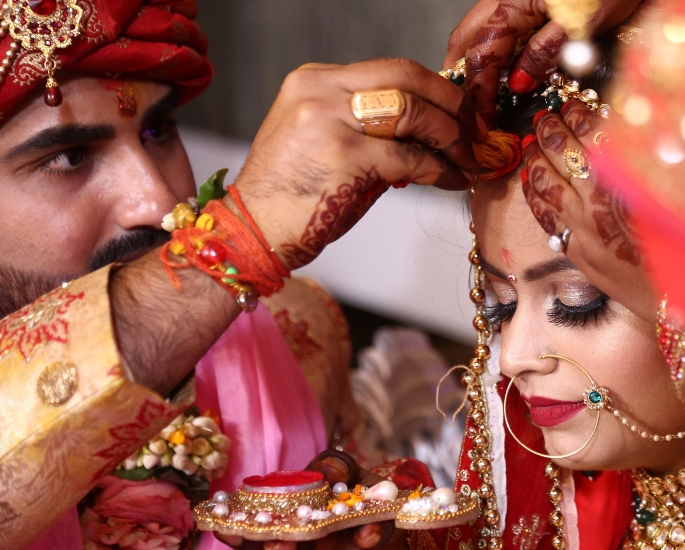
Love marriage is when a couple decides to get married out of their own will. The two individuals fall in love before the marriage itself, unlike the traditional arranged marriage.
In contrast to an arranged marriage, a love marriage does not revolve around family approval. The decision to get married is solely on the couple.
In 2020, a study was done on the topic of arranged marriage vs love marriage in India. A staggering 69.2% of Gen Z expressed they would prefer a love marriage to arranged marriage.
Not far behind on this belief were the millennials with 62.3% also favouring love marriage.
This highlights the growing changes in marriage expectations.
Traditionally, a man and a woman would get married and have children. That was considered the natural order, love or not.
However, with time, the understanding of marriage is drastically changing.
Marriage is no longer about procreation and appeasing cultural and parental expectations. It’s about two people that fall in love and choose to get married.
DESIblitz spoke to some South Asians that have had love marriages to understand their views and if it is still frowned upon. Farhan Malik, married for two years says:
“Love is the foundation of a marriage.
“You can certainly compromise your whole life and just carry on being married for the sake of it but it’s not it.
“My parents have had a loveless marriage and that lack of love traumatised me.”
“They always engraved the idea that I shouldn’t date or see people because they’ll choose my wife. I said f**k that.”
Desi parents often emphasise that they will choose their children’s spouses. Inherently, there is nothing wrong with this. Arranged marriages can often bring a lot of happiness.
However, when parents are not the best representation of an arranged marriage, it often forces their children to rebel.
Farhan clearly does not trust his parents’ choice. He sees loveless marriages as traumatising.
His own experience with his parents’ marriage led him to have a stigma against arranged marriages:
“I chose her. I am so glad I did. Nobody knows me better than I do. My likes and dislikes. Choosing her is the best thing I have ever done.
“It forced me to understand that my parents were not the role models they should have been. When I fell in love, things finally made sense. All of a sudden, I could see the dots adding up.
“Love is 100% important in a marriage.”
Furthermore, Neha Ahuja*, married for four years expresses:
“We met through friends of friends. We fell in love quickly, but I had very strict parents. I knew I was crossing boundaries by dating a guy. It wasn’t him that was the issue. He’s a great guy.
“The problem was my parents’ backward mentality. I come from a family of arranged marriages so when I finally broke the news, they made me choose.
“They said I can either get married to a man of their choice and not disgrace them or I could get out of their house.”
Emotional blackmail is often a tactic used by some parents to force their children into abiding by their rules. Some are not strong enough to resist it. Neha continues:
“The choice was clear. I hadn’t done anything wrong. Falling in love is not a crime. They realised I wasn’t coming home and that I had chosen him over them.
“They had to come around. How could they explain to people that their daughter had left?
“Before anyone got a whiff of what had happened, they got us married. It was half-hearted. They allowed it because they cared for their izzat more than they cared for me. That’s the sad bit.”
Izzat meaning reputation is something that often triggers most Desi parents. It is obvious from Neha’s tone that there is a lot of disappointment:
“To everyone else, we had an arranged marriage, but we know that was definitely not the case.”
In some parts of the South Asian community, these types of love marriages are still frowned upon.
It is difficult to break tradition. Neha could have easily adhered to her family’s expectations and sacrificed her happiness for others. She chose not to.
South Asian culture must highlight the importance of being happy even if that’s from a love marriage. Farah Akter*, married for six years says:
“I think love is very important in a marriage. It does hold a couple together in tough times. But more than anything it’s the respect that keeps you bound to one another.
“Love is not constant. When you’ve been married for many years things that you loved about your spouse before your marriage begins to annoy you. The love begins to falter.
“It doesn’t disappear, but it changes. I can’t say that’s a bad thing.
“Your patience is tested. You fight and get angry. But at the end of the day, as long as you respect one another, the boundary you set is never crossed.
“I am glad to have married someone I love and someone who loves me. But I do know now that respect is more important than love.”
Farah’s perspective on marriage is very similar to a lot of people that have had arranged marriages. The idea that respect for your spouse is more important than love is a reoccurring motif.
Perhaps, this goes to show that while love is important in a marriage, it certainly isn’t a dealbreaker if it is not felt.
Whereas, Fahad Suja*, divorced says:
“I got told a thousand times not to marry her. But I did anyway. I wouldn’t say I regret marrying her because I’ve learnt so much.
“Just because our marriage didn’t work out doesn’t mean I’m against love marriages now. But it certainly opened my eyes to arranged marriages.
“Before I would have said no to an arranged marriage. My experience has made me more open to it.”
In the modern age, there is a growing stigma toward arranged marriages.
There is a fear within the millennial and especially Gen Z community that parents won’t make the right decision for them as Fahad says:
“The reason for my divorce wasn’t the lack of love, it was the lack of understanding and respect. The foundations I thought we’d built before marriage scattered along the way.”
Love marriage doesn’t guarantee a successful marriage. Each marriage is unique, and everyone’s tolerance is different as Fahad says:
“We started resenting each other. There were too many fights and things got ugly. That’s when we both knew it was over.
“For me at least, love doesn’t make or break. But understanding does.”
For Fahad, love is no longer as important as he once believed. From his first marriage, he realised that love can sometimes be idealised but what truly matters is understanding between a couple
Whilst arranged marriages are seen as more of a taboo amongst modern generations, they are still the necessary route for some families.
Likewise, love marriages are stigmatised by these families as something that symbolises rebelliousness.
From the people we have spoken to, it can be said that whether love is a necessity in marriage depends entirely upon individuals.
For some, it is certainly a dealbreaker. For others, respect and understanding are more important.
Both love and arranged marriage have their own successes and failures.


